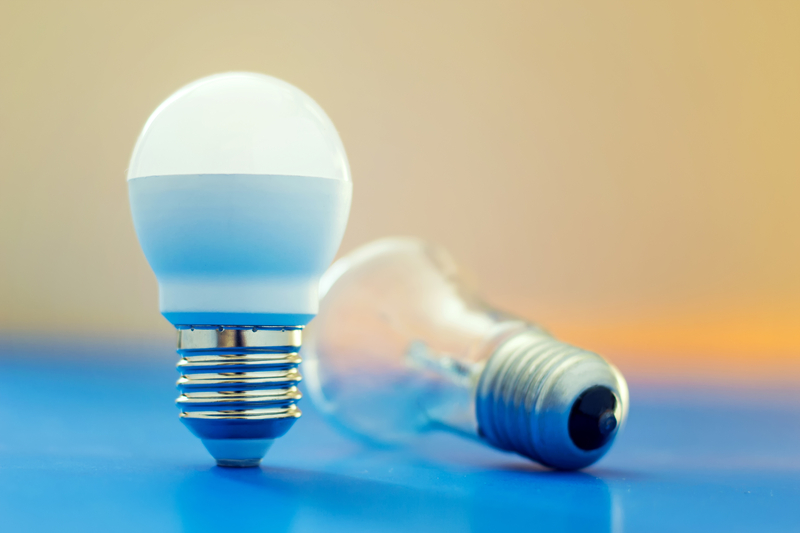This article is your complete guide on how to recycle light bulbs. Many of us might be wondering, what is the proper light bulb disposal technique and where does it go? It’s easy to grab your burnt-out bulb and toss it in the trash, but there is a proper way on how to dispose a light bulb! In this guide, we are going to cover all you need to know on how to recycle lightbulbs, so keep reading!
Here at The Energy Professor, we want to give you the information you need to not only save money on your energy bill, but to also become more energy efficient. We hope find this post helpful and makes it easier for you to know the proper way for recycling light bulbs. Be sure to also check out our one of a kind energy savings calculator!
The Energy Professor Electricity Rate Check Tool
How to Recycle Light Bulbs
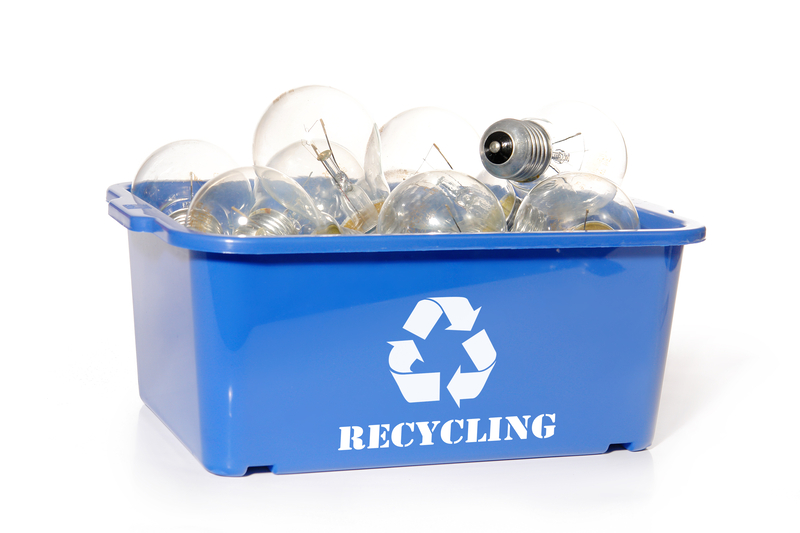
There can be between 50 – 100 light bulbs in one household, so it is important to know how to dispose of light bulbs. Since there are so many different kinds of lighting types, there are many different kinds of light bulbs that might be in your house. That’s why we are going to cover how to recycle light bulbs of many different kinds so you are fully informed on the process.
What kind of light bulbs can be recycled?
- Incandescent
- CFL or fluorescent
- LED
- Halogen
How to recycle incandescent light bulbs
Incandescent bulbs are the typical pear shaped, glass bulb with the filament in the center that produces the light. They’re usually the least expensive kind of light bulb and the least energy efficient of all of the choices on the market. Incandescent bulbs do not need to be recycled, and can be tossed into the trash, preferably wrapped for safety.
While incandescent light bulbs can be recycled, the small amount of metal and glass that are fused together make it difficult. With that being said, always check out your curbside recycling program to see what they accept. If not, your local recycling center may be available for drop off when recycling light bulbs.
How to recycle CFL light bulbs
A CFL bulb, or a compact fluorescent light bulb are pretty common due to the low use of energy, but are very harmful if broken. CFLs have about 4 mg of mercury in them, which when broken, gives them the ability to pollute our water supply when not recycled.
You should absolutely recycle fluorescent bulbs, or attempt to dispose of them properly because of the toxins that are inside of them. The proper way of disposing light bulbs that are either fluorescent or CFLs is to take them to your hardware store like Lowes or Home Depot to ask if they take them.
How to recycle LED light bulbs
LED light bulbs are the most efficient light bulb on the market and can last up to 30 times longer than the traditional incandescent light bulbs. LED bulbs do not contain any hazardous materials in them and can be tossed in the trash if necessary.
But, there are ways to recycle LED bulbs, and should be considered since there are a lot of parts that can be reused in them. If you are looking to recycle LED light bulbs, make sure to check with your local recycling program or hardware store for light bulb recycling bins.
How to recycle halogen light bulbs
Halogen bulbs are extremely bright lights that are lightweight and small. Halogen bulbs are mainly made from glass and are typically used for outdoor lighting fixtures. Although they are made of glass, the proper way to handle halogen bulb disposal is not to toss them in your glass recycling. Since there is quartz in them, it does not have the same melting point as glass and would ruin other glass recycling items.
It is recommended to wrap your halogen bulbs and toss them in the regular trash, but there mail-in and recycling centers to dispose of lightbulbs.
Why is is important to recycle light bulbs?
Certain light bulbs, like fluorescent lights, contain toxic chemicals inside of them that are very dangerous to the environment. CFLS contain mercury, and when they are taken to the landfill, those toxins can leach into the groundwater and affect the drinking supply. That’s why when you properly recycle a light bulb, it is stored and disposed of safely by professionals.
Another reason to want to might to recycle light bulbs is that is keeps waste out of our landfills. Even bulbs without toxic materials in them can be recovered and reused, instead of taking up space and polluting the soil and area around them.
Related post: Complete Guide to the Best Time to Do Laundry
Where to Recycle Light Bulbs
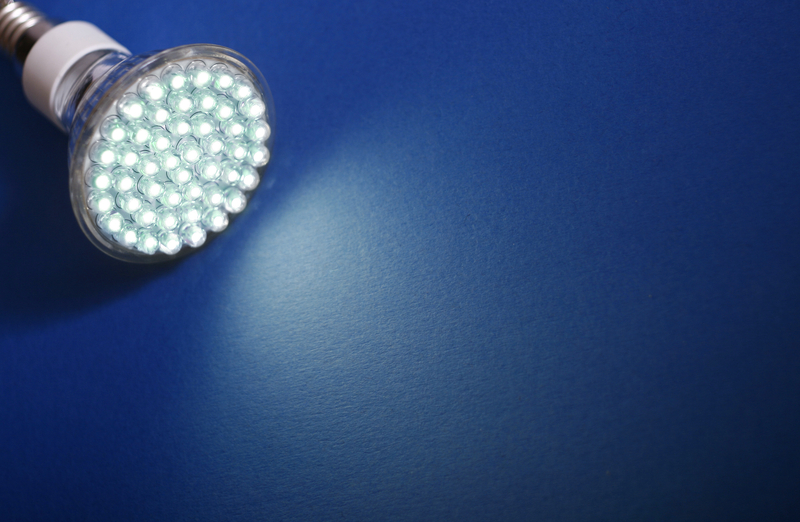
If you’re looking to properly dispose of light bulbs, but don’t know where to look we can help you out! Recycling light bulbs should be easily, and thankfully there are a few different ways you can do so depending on the bulb type.
Where to take light bulbs for recycling:
- Curbside Recycling – One of the easiest ways to dispose light bulbs is to check and see if your local or private trash company takes bulbs with your pick up! Make sure that is only with safe bulbs to put in your trash can and not CFLS or fluorescent bulbs.
- Recycling Centers or Stores – If you do not have curbside recycling, try searching local recycling centers to see what kind of bulbs they accept. Certain stores also have bins specifically for disposing of light bulbs. Check hardware stores or even places like Ikea or Target.
- Mail-In – If all else fails, there are mail-in recycling companies that will take your light bulbs. The only issue is that properly disposing light bulbs through mail means paying extra for durable shipping containers.
Many popular stores like Home Depot and Lowes Home Improvement Store offer light bulb recycling programs, which make it super simple to do.
Related post: Complete Guide to the Best Electricity Saving Devices for Homes
Lightbulb Disposal – Know Your Recycling Laws and Regulations
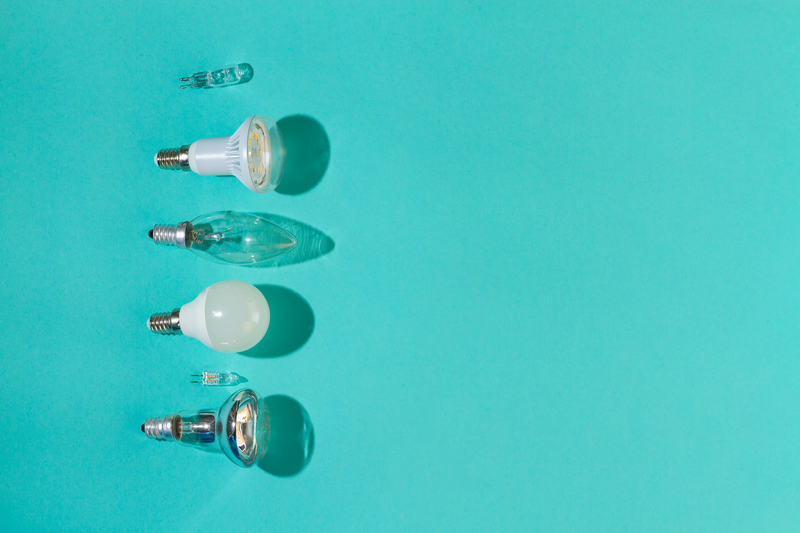
Just like with any toxic materials, there are some states or areas that strictly prohibit the disposal of fluorescent or CFL bulbs in regular trash. It can get you in a lot of trouble if you’re caught, but also can get you and others around you sick if it ends up getting into the waterways of your community. Don’t fret though, if you’ve wondering how to recycle light bulbs in your area, those with the strictest laws usually have the most accessible recycling programs!
If you’re looking for any specifics, the EPA is a wonderful place with a lot of local resources for light bulb recycling. But, to make sure you are in accordance with your local laws, make sure to check with your trash collection agency before making any assumptions!
Related post: How Much Electric Does a Hot Tub Use?
How to Recycle Light Bulbs FAQ
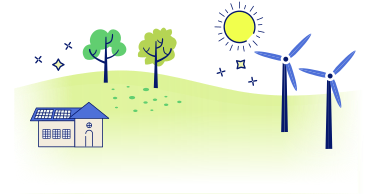
Q: Are light bulbs recyclable?
A: Yes, you can recycle light bulbs, and each type has their own process to make sure you are properly disposing of them. CFL light bulbs in certain areas are even illegal to throw away in your normal trash and should always be recycled due to hazardous material.
Q: Can you recycle light bulbs?
A: Yes, you can recycle light bulbs, and you should look up your local regulations on how to do so. Most people can recycle lightbulbs by bringing them to their local hardware store if they’re unsure of what to do!
Q: Can you recycle LED light bulbs?
A: Yes, LED light bulbs can be recycled. Recycling LED light bulbs is an environmentally responsible way to dispose of them and recover valuable materials. LED bulbs contain components such as metal, glass, and electronic circuitry that can be recycled and reused. The recycling process involves separating and processing these materials to be used in the production of new products.
Do you Need Cheaper Electricity?
If you’ve taken the time to understand the information on your bill and discovered you’re paying more than you’d like for your electricity, have you looked around for a cheaper deal? The Energy Professor has a wealth of information on ways to save on your utilities, including details of top deals that could significantly reduce your monthly or quarterly electricity bills.
We hope you found this article helpful! If you are looking for ways to increase the energy efficiency and sustainability in your home be sure to take a look at all of the latest renewable energy options in your area. The Energy Professor helps residential and small business owners find qualified energy suppliers in New York, New Jersey, Pennsylvania, Texas, Ohio, Maryland, Illinois, and Massachusetts

